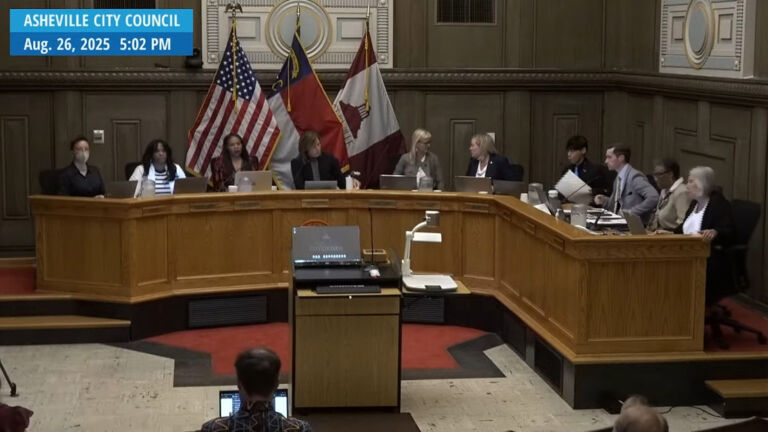Judge approves deal ending racial discrimination lawsuit against Asheville

A federal judge has signed an order ending a racial discrimination lawsuit challenging Asheville’s rules for serving on its Human Relations Commission. The order arrived a week after Asheville City Council voted to amend the commission’s membership and appointment criteria.
Asheville pledged to administer the HRCA ordinance “without regard to the race, ethnicity, color, or national origin of any applicant for appointment” to the group, according to the order US Chief District Judge Martin Reidinger signed Tuesday.
In 2022, facing difficulties filling vacancies, the City Council reduced the commission from 15 seats to nine. With some quotas removed, the city maintained race and identity-based preferences when evaluating applicants.
John Miall, who spent nearly three decades working for the city, applied in early 2023 to serve on the HRCA. His application was denied, leading Miall and four others to sue the city, alleging they were rejected because they are white.
The five plaintiffs working with the Pacific Legal Foundation claimed in their lawsuit that Asheville’s HRCA membership rules unlawfully discriminated and prevented qualified applicants from serving on the city advisory board.
“No government commission or committee should use an individual’s race or ethnicity to determine who gets the opportunity to serve their public,” the lawsuit stated.
At the Aug. 26 Asheville City Council meeting, the item was brought up for consideration, striking the discriminatory language from the membership criteria. Democrat Mayor Esther Manheimer described the change as necessary with the “new regime” in Washington, DC.
“As most people know, we have a change in leadership in Washington and a cancellation of all things DEI. And unfortunately, we are being sued over this, the way we’ve worded the appointment process for this committee,” said Manheimer. “We do have to make these changes or we could potentially be facing long litigation that we’re likely to not prevail on and end up incurring attorney’s fees and paying the other side’s attorney’s fees. So sometimes we have to be pragmatic in the way that we resolve things to save tax dollars.”
Not all council members supported the change. Councilwoman Kim Roney voted against it, saying the city must continue the fight.
“I will add that sometimes we can’t do anything and sometimes we should do what we can, like fighting for human and civil rights and our constitutional rights. And that’s something that our community needs us to do,” said Roney.
Lead attorney Andrew Quinio of the Pacific Legal Foundation called the outcome a significant milestone.
“This is a victory not just for our clients, but for every resident of Asheville who values equal treatment under the law. The government has no business telling people they can’t serve their community because of the color of their skin,” said Quinio.
“Judge approves deal ending racial discrimination lawsuit against Asheville” was originally published on www.carolinajournal.com.












